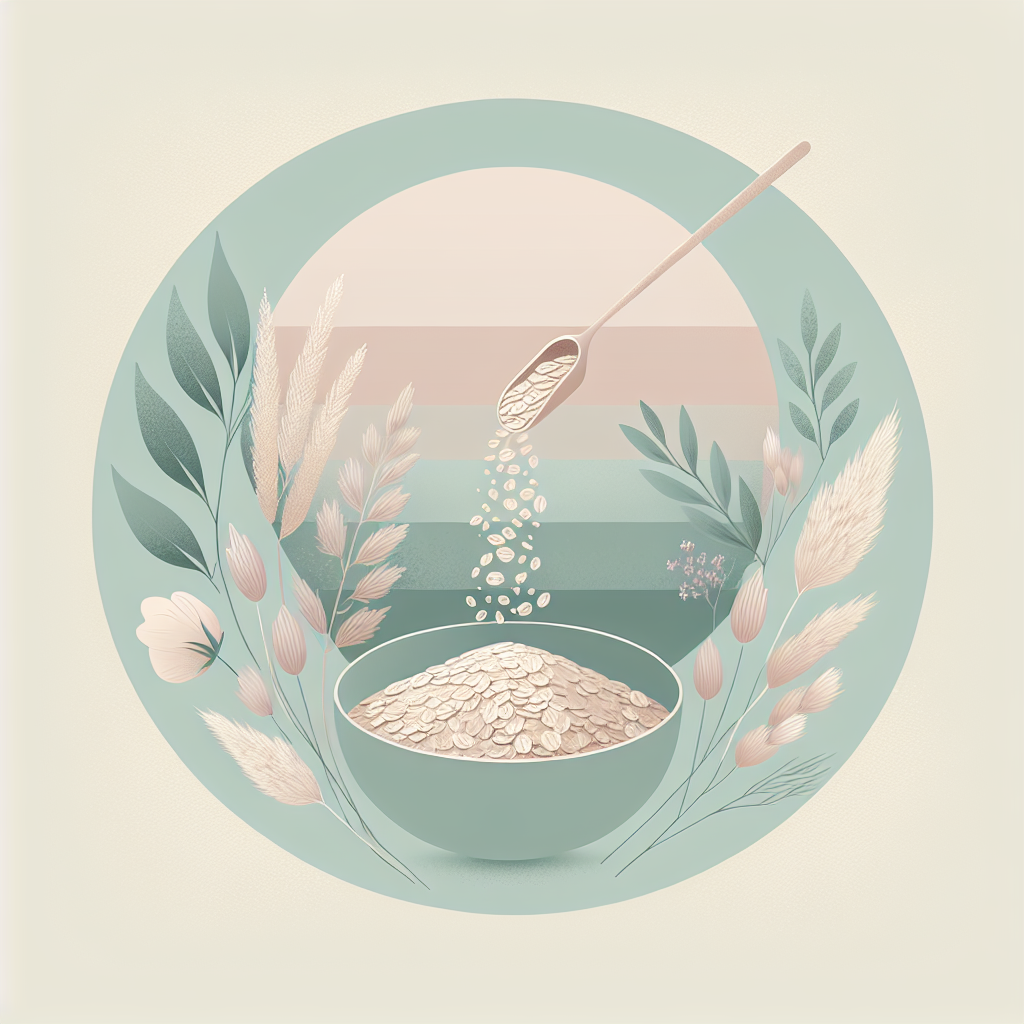
The health benefits of eating oatmeal daily for a month will suprise you. Oatmeal has long been celebrated as a breakfast powerhouse, heralded for its numerous health benefits. Many nutritionists recommend it for its high fiber content and ability to keep one feeling full longer. Curious about the effects of incorporating oatmeal into my daily diet, I embarked on a 30-day oatmeal journey. This article delves into my surprising results and the science behind oatmeal’s benefits, providing valuable insights for those considering a similar dietary experiment.
The Initial Motivation
The idea of eating oatmeal every day for a month stemmed from my desire to adopt a healthier lifestyle. Overwhelmed by the plethora of diet plans and superfoods available, I wanted something simple and sustainable. Oatmeal stood out due to its affordability, ease of preparation, and nutritional density.
I was particularly interested in improving my cholesterol levels, managing my weight, and enhancing my digestive health. With these goals in mind, I committed to consuming oatmeal every morning, prepared in various creative ways to keep my meals exciting.

The Oatmeal Experiment
My oatmeal routine involved different variations to prevent monotony. I alternated between classic rolled oats, steel-cut oats, and quick oats, often adding fruits, nuts, or spices to enhance flavor and nutrition. This approach not only kept me engaged but also allowed me to explore the versatility of oatmeal as a staple.
In addition to experimenting with different oat types, I began incorporating other grains like quinoa and chia seeds into my oatmeal to further boost its nutritional profile. These tiny seeds are packed with omega-3 fatty acids, adding an extra layer of health benefits to my morning routine. Moreover, I discovered that adding a pinch of salt and a drizzle of honey could transform a basic bowl of oatmeal into a gourmet delight.
Nutritional Benefits of Oatmeal
Oatmeal is a rich source of essential nutrients, making it an excellent choice for anyone looking to improve their diet. It is packed with complex carbohydrates, dietary fiber, and key vitamins and minerals.
Fiber Content
One of the standout features of oatmeal is its high fiber content, particularly beta-glucan, a type of soluble fiber known to reduce cholesterol levels and improve heart health. Consuming foods high in beta-glucan has been linked to a reduction in LDL (bad) cholesterol and an increase in HDL (good) cholesterol.
Furthermore, beta-glucan has been shown to enhance the immune system’s response to infections by stimulating certain white blood cells. This aspect of oatmeal provides an added layer of health protection, especially during flu season. Fiber also aids in regulating blood sugar levels, which can be particularly beneficial for individuals with type 2 diabetes.
Essential Vitamins and Minerals
Oatmeal is also a good source of important vitamins and minerals, including:
- Magnesium: Supports muscle and nerve function.
- Phosphorus: Essential for bone health.
- Thiamin: Aids in energy metabolism.
- Zinc: Helps in immune function.
In addition to these, oatmeal contains iron, which is crucial for transporting oxygen throughout the body. Regular consumption can help combat iron deficiency, a common issue particularly among women. The balance of nutrients in oatmeal makes it a powerhouse for overall well-being, providing energy and vitality to start the day.
Personal Health Improvements
After a month of daily oatmeal consumption, I noticed several positive changes in my health and well-being. The results were both expected and surprising in several areas.
Cholesterol Levels
One of the most significant changes was the improvement in my cholesterol levels. A blood test conducted before and after the experiment showed a noticeable decrease in my LDL cholesterol. This result aligns with scientific research that highlights oatmeal’s effectiveness in promoting heart health.

A study published in the American Journal of Clinical Nutrition found that participants who consumed oats daily experienced an average 5% drop in LDL cholesterol compared to those who did not. This improvement underscores the importance of dietary choices in managing heart health and reducing the risk of cardiovascular diseases.
Digestive Health
Oatmeal’s fiber content also had a positive impact on my digestive system. I experienced more regular bowel movements and felt less bloated throughout the day. This can be attributed to the bulk-forming nature of dietary fiber, which aids in promoting healthy digestion.
Regular consumption of oatmeal has been shown to increase the production of butyrate, a short-chain fatty acid that nourishes the gut lining and supports a healthy microbiome. This not only improves digestion but also enhances nutrient absorption and boosts overall gut health, contributing to improved immune function.
Weight Management
While weight loss was not my primary goal, I found that eating oatmeal helped me manage my weight better. The high fiber content kept me satiated longer, reducing the temptation to snack between meals. As a result, I consumed fewer calories overall.
A study in the Journal of the American College of Nutrition found that participants who ate oatmeal for breakfast felt fuller for longer periods and had a reduced desire to eat later in the day. This feeling of fullness can be a powerful tool for weight management, helping to curtail overeating and supporting a healthy weight.
Creative Oatmeal Recipes
To keep the routine interesting, I experimented with various oatmeal recipes, each offering unique flavors and additional health benefits.
Savory Oatmeal
- Spinach and Poached Egg Oatmeal: Incorporating fresh spinach and a poached egg into oatmeal creates a hearty meal packed with protein and iron.
- Mushroom and Herb Oatmeal: Sauteed mushrooms with thyme and rosemary add an earthy flavor, making the dish both satisfying and nutritious.
Savory oatmeal dishes provide a nutrient-dense start to the day and can also serve as a wholesome dinner option. By adding different vegetables and proteins, these recipes can be tailored to meet various dietary needs and preferences.
Sweet Oatmeal Variations
- Berry Almond Oatmeal: A mix of fresh berries and almonds provides a burst of antioxidants and healthy fats.
- Apple Cinnamon Oatmeal: Cooked apples with a sprinkle of cinnamon offer a comforting, sweet option reminiscent of apple pie.
For those with a sweet tooth, these variations can satisfy cravings without resorting to sugary cereals or pastries. The natural sweetness from fruits and spices like cinnamon and nutmeg makes these recipes both delicious and healthful.
Comparison Table: Oat Types
| Oat Type | Cooking Time | Texture | Nutritional Benefits |
|---|---|---|---|
| Rolled Oats | 5-10 minutes | Creamy | High in fiber, versatile |
| Steel-Cut Oats | 20-30 minutes | Chewy, nutty | Rich in nutrients, lower glycemic index |
| Quick Oats | 1-2 minutes | Soft, mushy | Convenient, slightly less fiber |
This table highlights the differences between popular oat types, helping you choose the best option for your dietary preferences and schedule.
Knowing the differences in cooking time and texture can help you plan meals more efficiently, ensuring you always have time for a healthy breakfast. For those with busy mornings, quick oats might be the best choice, while steel-cut oats can be a delightful weekend treat.
Actionable Tips for Oatmeal Success
Here are some practical tips to make the most out of your oatmeal journey:
- Experiment with Toppings: Add fruits, nuts, or spices to enhance flavor and boost nutritional value.
- Vary Your Oat Types: Alternate between rolled, steel-cut, and quick oats to keep your meals interesting.
- Prepare Overnight Oats: Save time by preparing your oats the night before for a quick, ready-to-eat breakfast.
- Mind Portion Sizes: Stick to recommended portion sizes to avoid excessive calorie intake.
- Incorporate Savory Options: Don’t limit yourself to sweet oatmeal; explore savory recipes for a change of pace.
These tips can help maintain enthusiasm and consistency in your oatmeal routine, allowing you to reap the full benefits of this nutritious grain.
Frequently Asked Questions
Is oatmeal suitable for gluten-free diets?
Yes, oats are naturally gluten-free. However, cross-contamination can occur during processing, so it’s important to choose oats labeled as gluten-free if you have celiac disease or gluten sensitivity.
Can I eat oatmeal for every meal?
While oatmeal is nutritious, it’s important to maintain a balanced diet by incorporating a variety of foods. Consider eating oatmeal for breakfast and diversifying your meals throughout the day.
How does oatmeal impact blood sugar levels?
Steel-cut and rolled oats have a lower glycemic index compared to quick oats, meaning they have a slower impact on blood sugar levels. Pairing oats with protein or healthy fats can further stabilize blood sugar.
What is the best way to store oats?
Store oats in an airtight container in a cool, dry place to maintain freshness. They can last up to a year when stored properly.

Are there any side effects to eating too much oatmeal?
While oatmeal is healthy, excessive consumption may lead to bloating or digestive discomfort due to its high fiber content. Balance your diet with other nutrient-rich foods.
Conclusion
My month-long oatmeal experiment was a resounding success, yielding noticeable improvements in cholesterol, digestion, and weight management. The versatility and nutritional benefits of oatmeal make it a valuable addition to any diet. Whether you’re seeking heart health, digestive balance, or simply a nutritious breakfast option, oatmeal is a worthy contender. Embrace the journey and explore the myriad ways oatmeal can enhance your health and culinary repertoire.
Incorporating oatmeal into your daily routine may seem like a small change, but its impact can be profound. As I continue to explore new oatmeal recipes and variations, I am reminded of the power of simple, wholesome foods in promoting long-term health and well-being.
Ready to Transform Your Health?
🥑 Download our FREE Complete Keto Diet Plan and start your journey to better health today!
[convertkit form=7803861]
—
Disclaimer: This content is for informational purposes only and does not constitute medical advice. Always consult a qualified healthcare professional before making changes to your health regimen.





